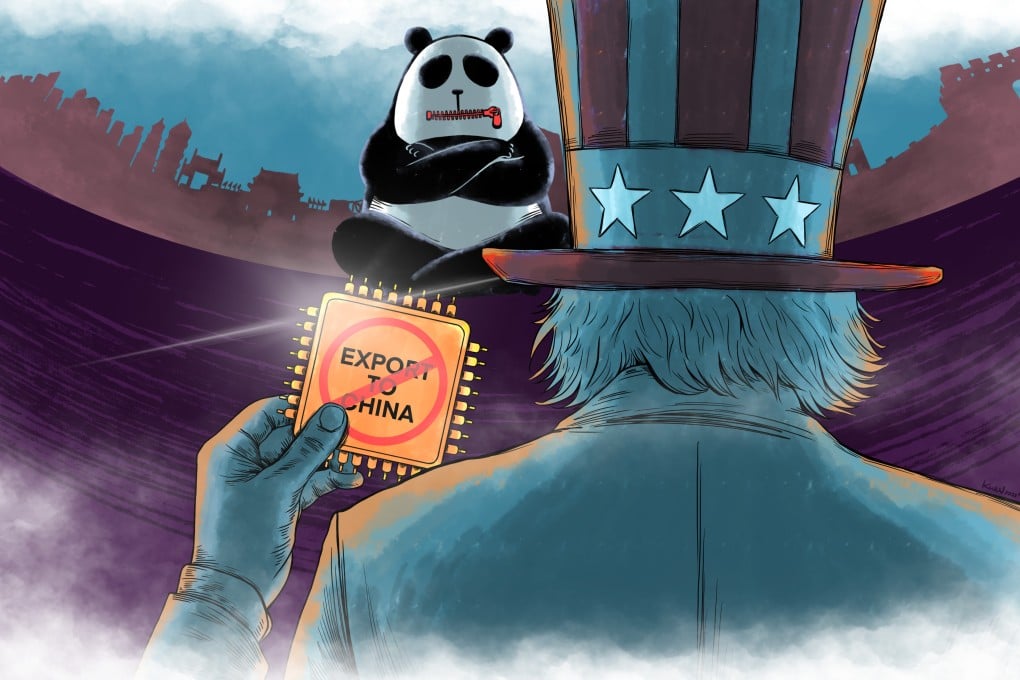Normally bellicose China’s meek response to US chip restrictions raises eyebrows
- Beijing typically ‘retaliates fully plus 10 per cent’, but this time it doesn’t seem to have many punitive options
- ‘It is a puzzle,’ says an American analyst. ‘On everything else, they seem to have skin that’s thinner than Saran Wrap.’

China has a long history of biting back when other countries adopt policies it does not like. In 2020, when Australia called for an investigation into the origin of the Covid-19 virus, it was hit with duties and bans on barley, wine, wheat, wool, copper, timber and grapes totalling over US$1.3 billion.
After Meng Wanzhou, chief financial officer of Huawei Technologies, was detained in Canada in 2018 for allegedly violating US sanctions against Iran, Beijing quickly detained two Canadians in China and blocked or slowed a slew of farm imports from Canada.
And after Taiwan opened a representative office in Lithuania in 2021 using “Taiwan” rather than “Taipei”, China sanctioned its officials, downgraded relations and banned its imports. Other recipients of heavy-handed reprisals include Japan, Mongolia, Norway, the Philippines and South Korea.
“China retaliates fully plus 10 per cent,” said Jeffrey Moon, president of China Moon Strategies. “They have consistent goals when they retaliate. They want to inflict proportionate pain, avoid negative impact on China and want to claim deniability.”

01:36
AI chip maker ordered by US government to halt exports to China
The relatively muted response from normally blustery Beijing after Washington announced restrictions on high-end semiconductors and chip-making equipment – a potentially huge blow to its economy, youth employment and vision of a reshaped society under the Communist Party blueprint – has analysts and former US officials parsing China’s thinking even as they wait for the other shoe to drop.
Within days of the early October announcement, Beijing issued a pro forma verbal response – terming the US restrictions “sci-tech hegemony” and a “malicious” violation of trade rules. But there has been little concrete resistance or lashing out.